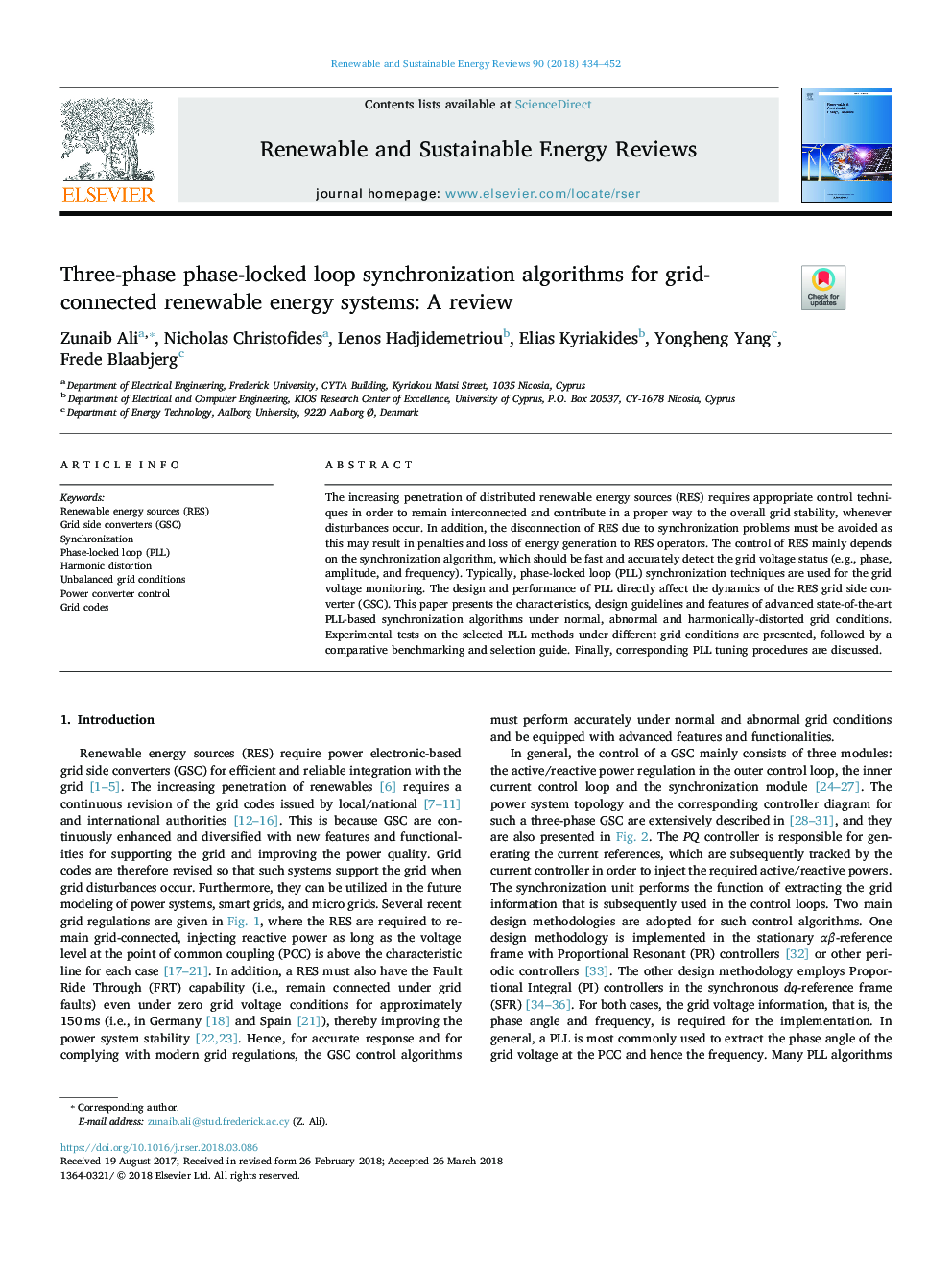| Article ID | Journal | Published Year | Pages | File Type |
|---|---|---|---|---|
| 8111315 | Renewable and Sustainable Energy Reviews | 2018 | 19 Pages |
Abstract
The increasing penetration of distributed renewable energy sources (RES) requires appropriate control techniques in order to remain interconnected and contribute in a proper way to the overall grid stability, whenever disturbances occur. In addition, the disconnection of RES due to synchronization problems must be avoided as this may result in penalties and loss of energy generation to RES operators. The control of RES mainly depends on the synchronization algorithm, which should be fast and accurately detect the grid voltage status (e.g., phase, amplitude, and frequency). Typically, phase-locked loop (PLL) synchronization techniques are used for the grid voltage monitoring. The design and performance of PLL directly affect the dynamics of the RES grid side converter (GSC). This paper presents the characteristics, design guidelines and features of advanced state-of-the-art PLL-based synchronization algorithms under normal, abnormal and harmonically-distorted grid conditions. Experimental tests on the selected PLL methods under different grid conditions are presented, followed by a comparative benchmarking and selection guide. Finally, corresponding PLL tuning procedures are discussed.
Keywords
Related Topics
Physical Sciences and Engineering
Energy
Renewable Energy, Sustainability and the Environment
Authors
Zunaib Ali, Nicholas Christofides, Lenos Hadjidemetriou, Elias Kyriakides, Yongheng Yang, Frede Blaabjerg,
